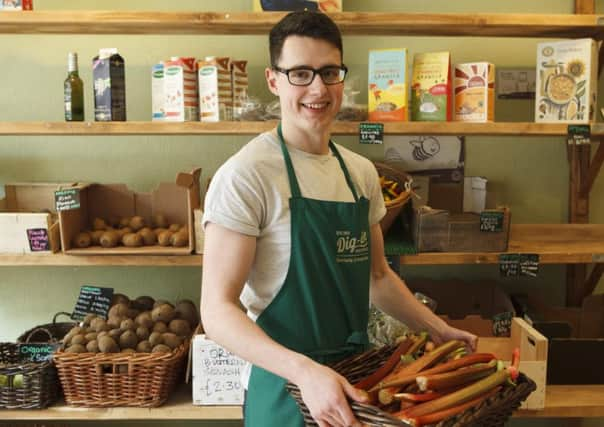Duncan Thorp: Pillars of the community – local enterprises do it for themselves


There are many examples – Dig In Bruntsfield, the community grocery shop in Edinburgh, the Kinning Park Complex in Glasgow building a vibrant community facility, the Sleat Community Trust in Skye, the Inverclyde Development Trust and many more.
While some community-owned businesses and projects may have a low turnover, their social and economic impact, particularly in a small community, can be huge. Alongside the broader localist agenda, community ownership can have a significant impact. This isn’t just about locally-run businesses, it’s also about local currencies, community food growing, tool libraries and local environmental schemes.
Advertisement
Hide AdAdvertisement
Hide AdWe shouldn’t underestimate what this means over the longer term. With Scotland’s ‘missing tier’ of local government, these businesses and projects are helping to revive local economies and local democracy.
The Development Trust Association Scotland (DTAS) and its Community Ownership Support Service (COSS) is driving the agenda in Scotland.
COSS has so far supported 800 communities in exploring asset transfer. This is when a community group applies to take over ownership or management of a building, land or other asset from a public body. These have included pontoons, slipways, former town halls and schools.
However, there are still barriers to community ownership. The Scottish Land Fund has been a powerful tool for acquisitions. However, accessing funding has become increasingly challenging. The Scottish Land Commission recently published a report seeking to address some of these issues.
Concentrated ownership of land is also still a major concern. Despite some relatively radical reforms since devolution, Scotland has the most unequal land ownership in the western world. According to the Scottish Government, 57 per cent of rural land is privatised, around 12.5 per cent owned by public bodies, 3 per cent under community ownership and about 2.5 per cent is owned by charities and other third sector organisations.
When land and other assets are in a few private hands it places barriers on communities. Housing, regeneration and economic development are held back by sometimes absentee or uncaring landlords. Land held in offshore trusts also means that the potential for big tax income to fund our public services is being denied.
Alternatively when land, buildings and businesses are community-owned they regularly lead to innovation and a renaissance in economic activity. One community project often has a ripple effect and leads to other activities. In Scotland, communities are increasingly seeking to do things differently. There’s huge potential to forge a different path and revive local economies and local democracy to benefit everyone.
Duncan Thorp, Social Enterprise Scotland. Development Trusts Association Scotland and the Community Ownership Support Service contributed to this article.